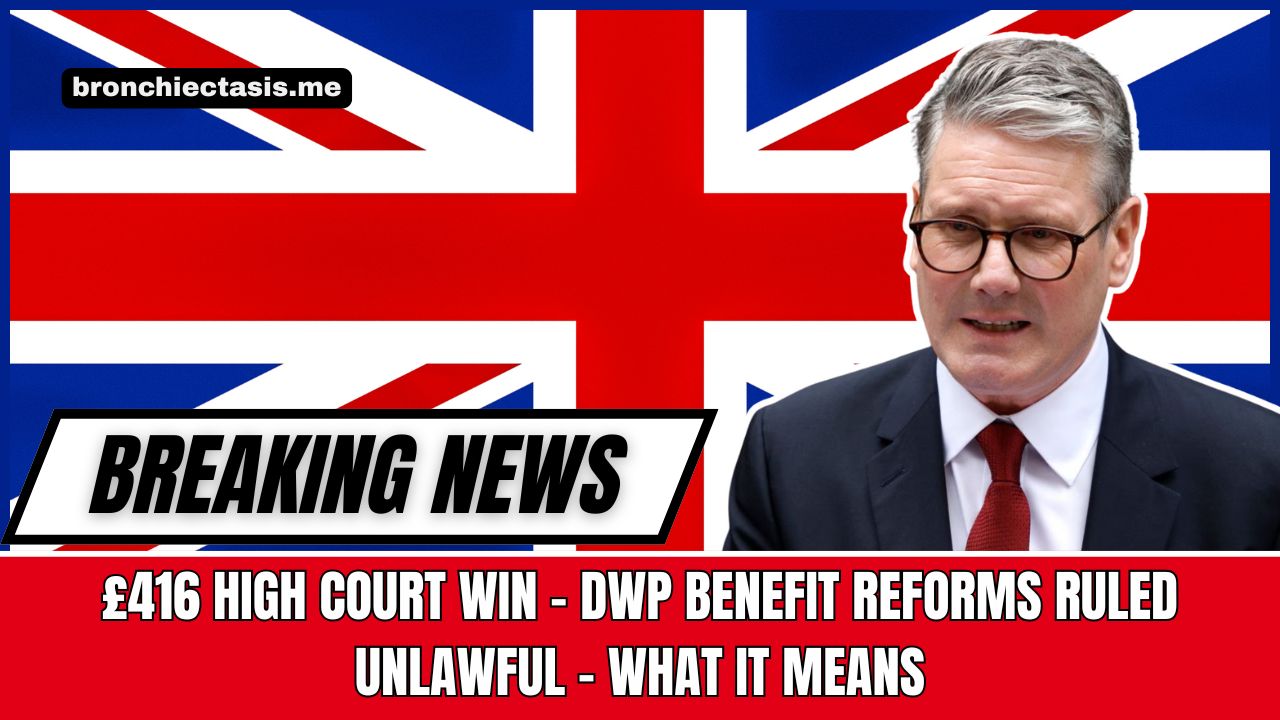In a major victory for disabled people across the UK, the High Court has ruled that recent Department for Work and Pensions (DWP) benefit reforms were unfair and unlawful.
This decision has raised hopes for hundreds of thousands of claimants who faced losing a large part of their monthly income.
The judgment revealed that the DWP’s consultation process—a legal requirement before making policy changes—was deeply flawed. The court found that the department withheld critical information, meaning the public could not give informed feedback.
This case is more than just a technical legal win—it’s a reminder of how government decisions can affect real people’s lives, especially when it comes to benefits and disability support.
The Reform and Its Real Impact
The government claimed these reforms would help disabled people get into work, but evidence presented in court showed a different motive: cost-cutting.
Some claimants could have lost more than £416.19 per month, while around 100,000 people were at risk of being pushed into absolute poverty. For many, that would mean choosing between heating their homes or buying food.
Impact
| Key Detail | Figure / Fact |
|---|---|
| Claimants affected | 424,000 |
| Pushed into absolute poverty | ~100,000 |
| Monthly loss for some | £416.19+ |
| Consultation status | Ruled unlawful |
| Main policy driver | Cost-cutting, not proven employment gains |
What the High Court Said
Justice Calver was clear: the consultation process didn’t just fall short—it broke the law. UK public law demands that when a government department plans changes affecting vulnerable groups, it must fully inform the public so they can respond properly.
The DWP failed to share impact assessments showing the real consequences of the reforms. This is like signing a contract without knowing the terms—unacceptable in a democratic process.
What Happens Next?
While the court ruled against the consultation process, it did not automatically reverse the reforms or restore lost benefits. However, this decision gives campaigners a powerful legal tool to challenge and potentially stop these changes.
Disability rights groups such as Inclusion London and the Public Law Project are demanding a fresh, transparent consultation that includes disabled people in the decision-making process. The PCS union, representing many DWP staff, has also spoken out, calling the reforms harmful.
Why This Case Matters Beyond Disability Benefits
This ruling is not only about disability rights. It raises bigger questions about how public money is managed. Critics argue that while the government often focuses on welfare fraud, which costs relatively little, it loses billions each year through tax avoidance and corporate loopholes.
Cutting benefits for the poorest saves small amounts but creates huge human suffering. It also damages trust between the public and government when policies are presented as “support” but hide the true impact.
Important Points You Need to Know
- 424,000 people were at risk from these changes.
- The consultation process was found to be unlawful.
- The main reason for reforms was cost-cutting, not job creation.
- Campaigners are pushing for a complete do-over of the reforms.
- The case highlights the need for transparency in policymaking.
The £416.19 High Court victory is a landmark moment for disabled rights in the UK. While it doesn’t immediately put money back into claimants’ pockets, it exposes serious failures in how the government consulted on major policy changes.
Campaigners now have a stronger case to demand fairer, more transparent reforms that truly support vulnerable people instead of cutting vital income.
This case serves as a warning that in a democracy, policy must be based on honesty, fairness, and public trust—values that cannot be compromised.
FAQs
Does the ruling mean benefits will be restored?
No. The ruling only invalidates the consultation process. Benefits will only be restored if the government changes its policy or is forced to after new legal action.
Will affected people get compensation?
Not from this ruling alone. Claimants would need a separate case or a government decision to receive compensation.
Why were the reforms ruled unlawful?
Because the DWP did not share important information during the consultation, breaking the law that requires transparency in such processes.
